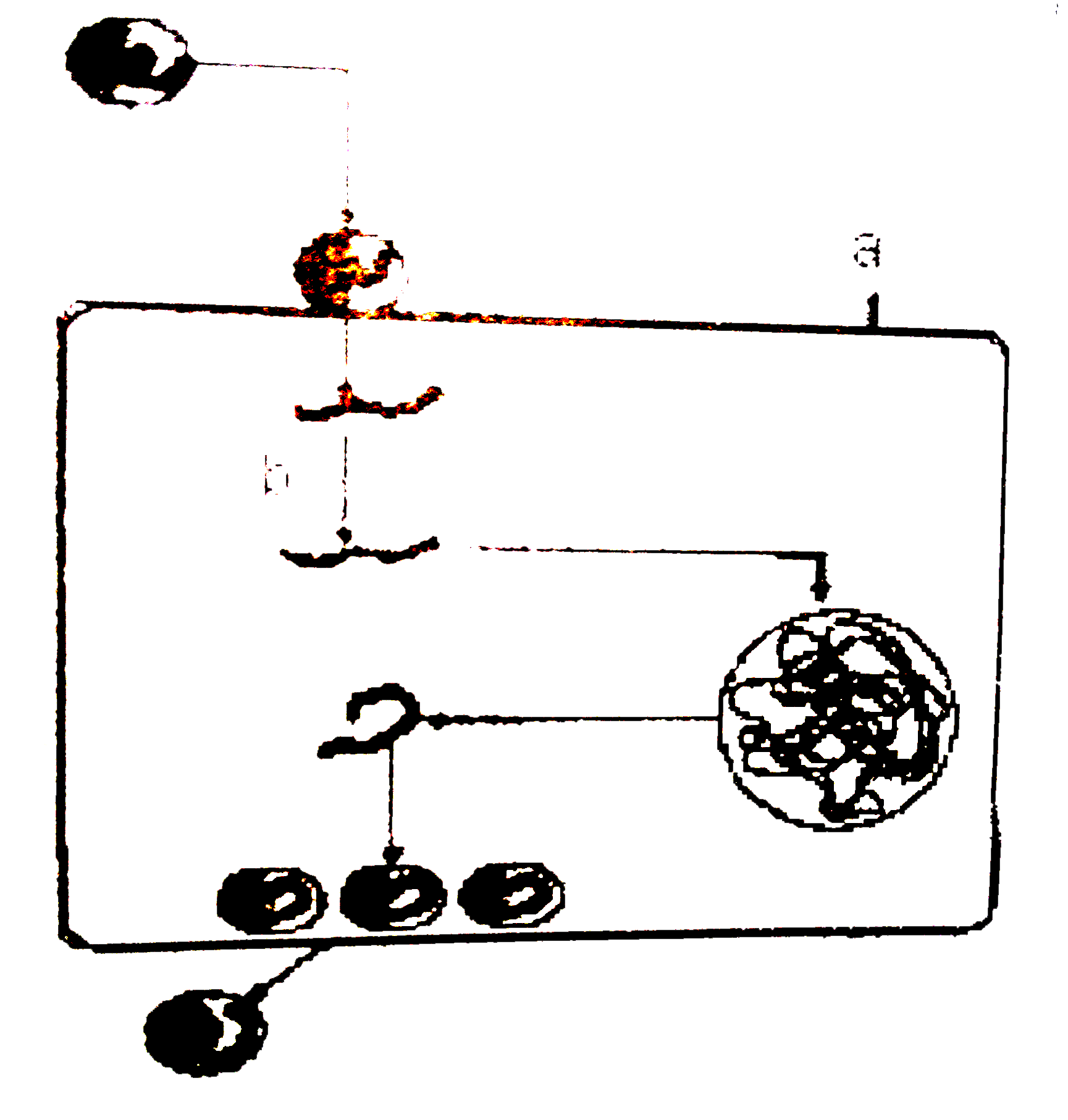During in vitro synthesis of DNA, a researcher used 2',3'- dideoxy cytidine triphosphate as raw nucleotide in place of 2'- deoxy cytidine triphosphate, other conditions remaining as standard. will further polymerisation of DNA continue upto the end or not? Explain.Solution in Bengali
Further polymerisation would not occur, as the 3' OH on sugar is not there to add a new nucleotide for forming ester bond.
Topper's Solved these Questions
- GENETICS AND EVOLUTION BOOK - TRUEMAN BIOLOGYCHAPTER - GENETICS AND EVOLUTION EXERCISE - SECTION-C
45 Videos
- GENETICS AND EVOLUTION BOOK - TRUEMAN BIOLOGYCHAPTER - GENETICS AND EVOLUTION EXERCISE - SECTION-D
25 Videos
- GeneticsBOOK - TRUEMAN BIOLOGYCHAPTER - GeneticsEXERCISE - ASSERTION AND REASON
123 Videos
- HUMAN HEALTH AND DISEASEBOOK - TRUEMAN BIOLOGYCHAPTER - HUMAN HEALTH AND DISEASEEXERCISE - MULTIPLE CHOICE QUESTIONS
210 Videos
Similar Questions
(i) What does this diagrammatic sketch depict?
(ii) Identify a' and 'b
(iii) Name the widely used diagnostic test when a person gets this disease.

View Solution(a) Give reason for -
(i) Both strands of DNA are not copied during transcription.
(ii) Transcription and translation in bacteria can be coupled.
(b) Differentiate between the process of transcription in prokaryotes and eukaryotes
View Solution[A]: The two members of a gene pair segregate from each other into the gametes.
[R]: During gametogenesis, the segregation of one gene pair is independent of other gene pair.
View SolutionWhich of the following is a set of bacterial diseases?
View SolutionDuring in vitro synthesis of DNA, a researcher used 2', 3'-dideoxy cytidine triphosphate as raw nucelotide in place of 2' -deoxy cytidine. What would be the consequnce?
View SolutionIn a nucleus, the number of RNA nucleoside triphosphates is 10 times more than the number of DNA nucleoside triphosphates, still only DNA nucleotides are added during the DNA replication, and not the RNA nucleotides. Why?
View SolutionDuring in vitro synthesis of DNA, a researcher used 2. 3' dideoxy cytidine triphosphate as raw nucleotide in place of 2 deoxy cytidine triphosphate, other conditions remaining as standard. will further polymerisation of DNA continue upto the end or not? Explain.
View SolutionWhat is the function of Deoxy nucleotide triphosphate in replication?
View SolutionDuring in vitro synthesis of DNA, a researcher used 2'-3'—dideoxycytidine triphosphate as raw nucleotide in place of 2'-deoxy cytidine triphosphate other conditions remaining as standard. Will further polymerisation of DNA continue upto the end or not? Explain.
View SolutionIn a nucleus, the number of RNA nucleoside triphosphates is 10 times more than the number of DNA nucleoside triphosphates, still only DNA nucleotides are added during the DNA replication, and not the RNAnucleotides. Why?
View SolutionDuring in vitro synthesis of DNA, a researcher used 2', 3' - dideoxy cytidinetriphosphate as raw nucleotide in place of 2'-deoxy cytidine triphosphateother conditions remaining as standard. Will further polymerisation of DNA continue upto the end or not? Explain.
View SolutionDuring in vitro synthesis of DNA, a researcher used 2', 3'-dideoxy cytidine triphosphate as raw nucelotide in place of 2' -deoxy cytidine. What would be the consequnce?
View SolutionIn a nucleus, the number of ribonucleoside triphosphates is 10 times the number of deoxy x10 ribonucleoside triphosphates, but only deoxy\ ribonucleotides are added during the DNA replication. Suggest a mechanism.
View SolutionDuring in vitro synthesis of DNA, a researcher used 2', 3'- dideoxy cytidine triphosphate as raw nucleotide in place of 2'-deoxy cytidine. What would be the consequence ?
View SolutionIn a nucleus, the number of RNA nucleoside triphosphates is 10 times more than the number of DNA nucleoside triphosphates, still only DNA nucleotides are added during the DNA replication, and not the RNA nucleotides. Why?
View SolutionDuring in vitro synthesis of DNA, a researcher used 2. 3' dideoxy cytidine triphosphate as raw nucleotide in place of 2 deoxy cytidine triphosphate, other conditions remaining as standard. will further polymerisation of DNA continue upto the end or not? Explain.
View Solution
